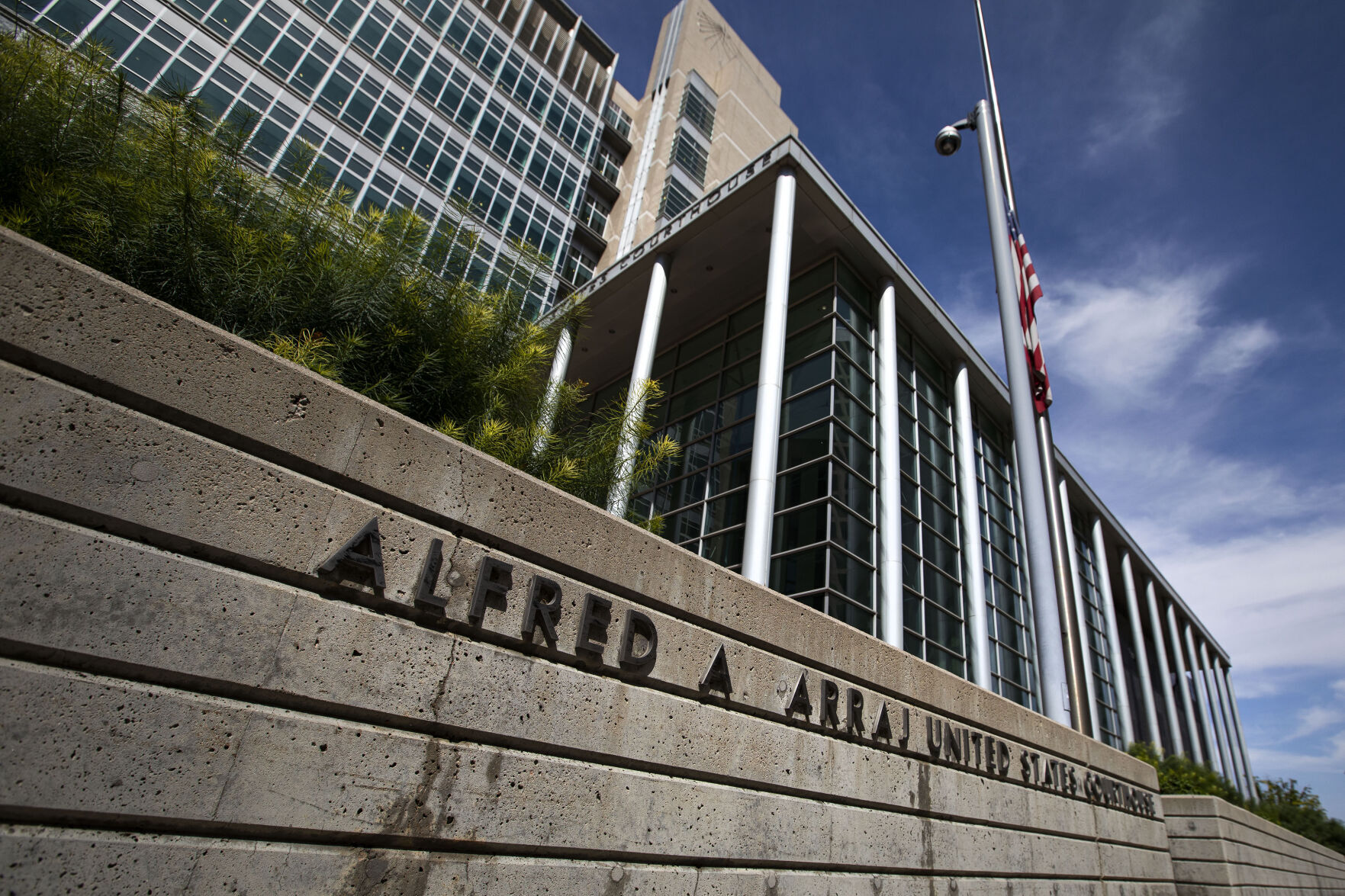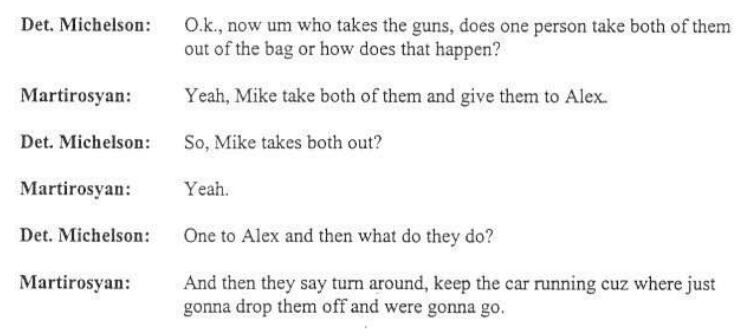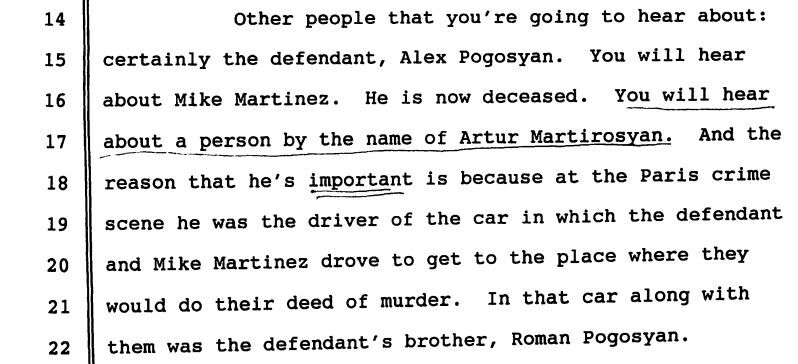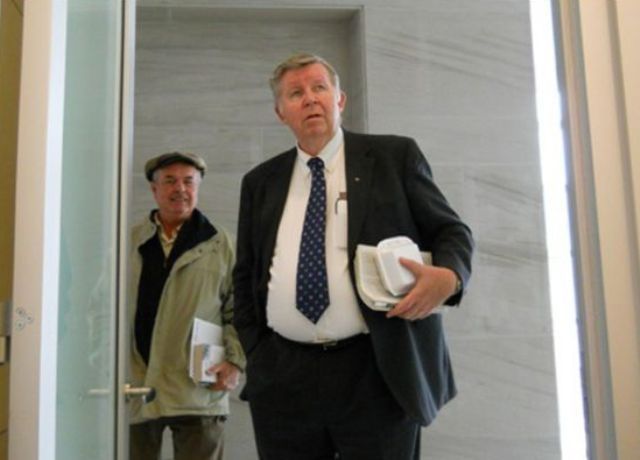Federal judge finds constitutional violation in Aurora ‘Labor Day Massacre’ murder trial

A federal judge last week agreed a man convicted more than 20 years ago for a series of Aurora murders known as the “Labor Day Massacre” had his constitutional rights violated when prosecutors played for jurors unreliable statements from a second homicide suspect.
U.S. District Court Judge Nina Y. Wang made the unusual finding that Colorado judges applied the law contrary to the U.S. Supreme Court’s interpretation at the time of Alexander Pogosyan’s 1999 trial. Specifically, they deemed it acceptable for jurors to view a videotaped interview with Artur Martirosyan, who drove Pogosyan on the day of the slayings and implicated him in murder.
But Martirosyan’s out-of-court statement, which the defense could not cross-examine at trial, violated the Sixth Amendment’s guarantee that the accused may confront the witnesses against them.
“The fact that much of the Martirosyan statement came in response to leading questions from the detectives during the interview also weighs against a finding of trustworthiness,” Wang wrote on June 20. “Finally, there is no dispute that Mr. Martirosyan did not provide one consistent version of events, as he initially denied knowing anything about the shootings before changing his story.”
At the same time, she conceded Martirosyan’s videotaped statement did not likely play a large role in the guilty verdict. Consequently, Wang rejected Pogosyan’s request for relief.
Pogosyan’s petition, known as a “habeas corpus” proceeding, comes 20 years after the state Court of Appeals upheld his convictions. Pogosyan appealed to the Colorado Supreme Court, where two members voted to review whether the use of Martirosyan’s videotaped interview violated the Sixth Amendment. That fell just short of the court’s threshold, as at least three justices must agree to hear an appeal.
On Sept. 7, 1998, Labor Day, there was no question that 18-year-old Michael Martinez killed five people in two households, likely with the assistance of a second shooter. Later that day, police found Martinez shot dead. That murder is still unsolved.
Martirosyan said he drove Martinez, Pogosyan and Pogosyan’s brother, Roman, to and from the first set of murders in a home on S. Paris Way. Martinez went inside along with someone else. Martirosyan said the other person was Alex Pogosyan. Alex’s lawyers insisted he never entered, so the second shooter must have been Roman.
Over the defense’s objection, Arapahoe County prosecutors played an edited video of Martirosyan’s statements to police four days after the killings. Law enforcement had first talked to him at his high school, but did not tape their conversation. Later that day, they sat him down at the police station.
Martirosyan proceeded to discuss 18-year-old Alex Pogosyan’s role in going into the Paris Way home with guns alongside Martinez. Martirosyan never took the witness stand because after talking to police, he disappeared. Authorities believed he may have left the country. He remains wanted for first-degree murder in Colorado today.

In 2003, the state’s Court of Appeals upheld Pogosyan’s murder convictions. A three-judge panel believed the videotaped interview was sufficiently reliable as out-of-court testimony. Importantly, Martirosyan had said things about his role that made himself a criminal suspect.
He would not have disclosed those details “unless he believed them to be true,” wrote then-Judge Jose D. L. Marquez, adding that Martirosyan did not “shift or spread blame.”
After Pogosyan filed his habeas corpus petition, the government maintained the Martirosyan video was a small part of the trial. Other witnesses had also interacted with Pogosyan on Labor Day and heard him confess to the Paris Way murders and three more killings at an E. Harvard Ave. home. Martirosyan simply made it “easier” for jurors to understand the narrative of Pogosyan’s actions, wrote the Colorado Attorney General’s Office.
Pogosyan countered that the government’s position overlooked several problematic details. Multiple witnesses originally did not implicate Pogosyan in the slayings. They had pending cases or accusations before the same district attorney’s office, suggesting their shifting stories had something to do with their own threat of prosecution. Martirosyan even said, at one point, “What could I say to get me out of this?”
Further, the government repeatedly focused on Martirosyan’s video at trial.
“As Martirosyan put it,” said prosecutor William W. Hood III, “Defendant’s motive was that he was a ready foot soldier for Mike Martinez. If Mike needed help, he was ready to provide that help.” Hood is now a member of the Colorado Supreme Court.

Wang, in her review of the habeas corpus petition, noted she could only grant relief if the state court unreasonably applied federal law. At the time of Pogosyan’s trial, the U.S. Supreme Court interpreted the Sixth Amendment’s guarantee of witness confrontation to allow for out-of-court statements when the witness was trustworthy.
Wang concluded Martirosyan was not trustworthy. He disappeared immediately after his interview, changed his story, minimized his own involvement and was subject to tough or leading interrogation tactics from detectives.
But Wang did not have “grave doubts” the videotape substantially influenced the jury’s verdict. She acknowledged the prosecution “clearly” thought the evidence was important, but multiple witnesses testified that Pogosyan had told them of his involvement in the killings. Moreover, the trial attorneys made sure jurors knew about those witnesses’ credibility problems, and they still voted to find Pogosyan guilty.
“With or without the Martirosyan statement, the jury heard several witnesses recount Petitioner’s contemporaneous confession to the killings,” Wang concluded.
Even though she denied Pogosyan’s petition, Wang also gave him the green light to appeal. Judges may do so when there is a substantial indication of a constitutional violation.
Pogosyan is currently serving multiple life sentences with the possibility of parole. Roman Pogosyan, the alternate suspect, never testified and instead asserted his own constitutional right against self-incrimination before his brother’s trial.
The case is Pogosyan v. Jaques et al.














